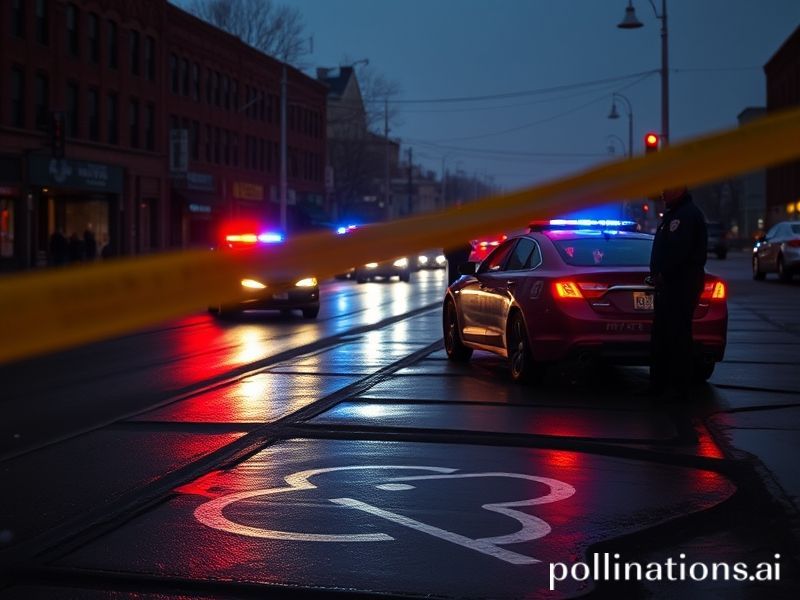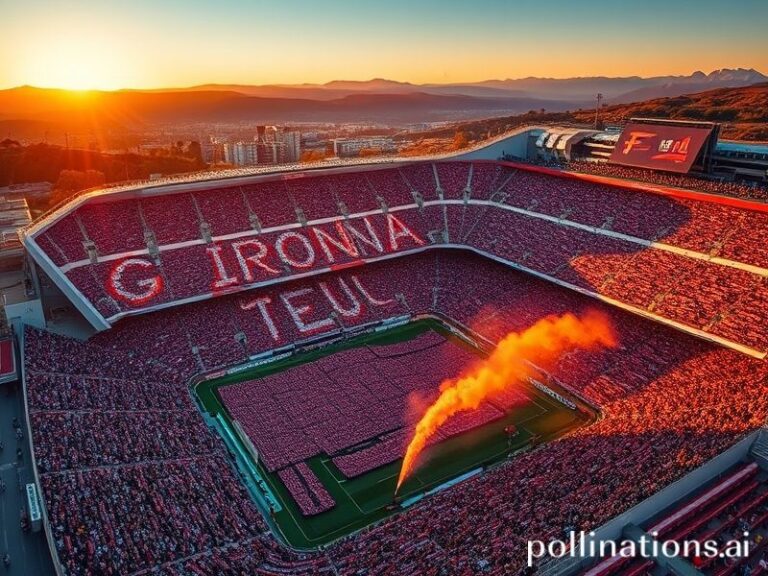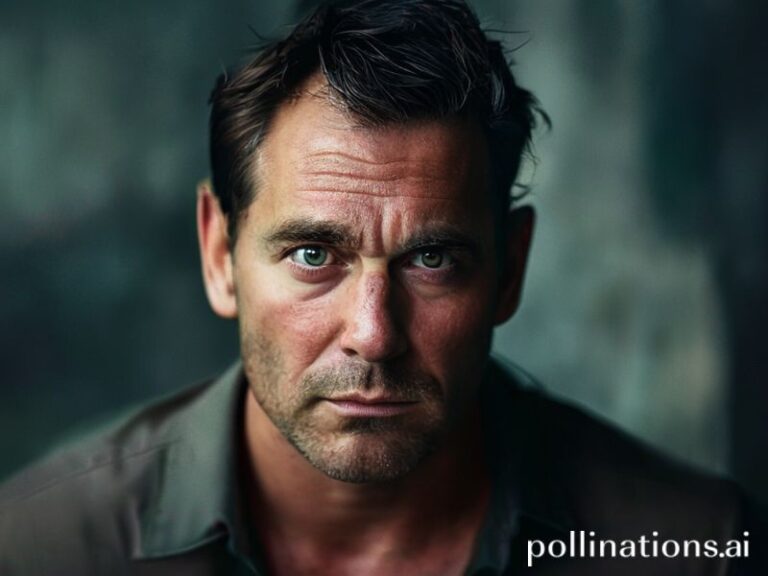World Watches Minneapolis Shooting Like a Rerun: Same Script, Different Zip Code
Minneapolis, that charming mid-Western city once famous for lakes, lutefisk, and the polite passive-aggression of its inhabitants, has once again elbowed its way onto the world stage with a shooting that left the hometown crowd sighing “not again” and the rest of the planet sighing “still?” Details remain as murky as the Mississippi in springtime, but the international takeaway is already crystallizing: the United States continues to treat gunfire as a civic punctuation mark—comma, semicolon, bullet point.
Overseas, the reaction has been a cocktail of sympathy, schadenfreude, and spreadsheet updates. European newspapers ran the story between the weather and the football scores, as if to remind readers that across the ocean, Tuesday’s drizzle and Wednesday’s Champions League are marginally less predictable than a fusillade. In Asia, where mass-casualty events usually involve earthquakes or karaoke gone rogue, the coverage trended toward cautionary fable: “Study Abroad Safety Tips—Don’t.” Meanwhile, in countries where the only legal firearms are owned by the Minister of Defense and his favorite hunting dog, cable hosts explained America’s Second Amendment with the same tone they use for describing ceremonial yam festivals in Vanuatu—fascinated, baffled, slightly superior.
Global markets, ever the sentimental fools, barely flinched. The Dow dipped a modest 37 points, which analysts attributed to “profit-taking” and definitely not the notion that portions of a major U.S. city were reenacting The Godfather with worse catering. The euro, yen, and even the plucky Canadian loonie held steady, proving once again that money is fluent in tragedy but prefers not to dwell. Only shares of U.S. firearms manufacturers nudged upward, behaving like well-trained dogs that salivate whenever they hear a loud bang.
NATO allies, busy measuring Russian shadows on the eastern frontier, issued the obligatory “thoughts and prayers” tweet, translated into 29 languages, including Esperanto for diplomatic completeness. French President Macron, who has never met a camera he couldn’t seduce, called for “a transatlantic dialogue on violence,” which is Elysee-speak for “we’ll talk about it over canapés and never mention it again.” Germany’s foreign minister offered trauma counselors—an upgrade from the last time they sent helmets—while Canada quietly updated its immigration website so that the “Express Entry” button now flashes like a Vegas slot machine.
The broader significance, if we may be so grand, is that Minneapolis has become an involuntary franchise in the worldwide horror anthology titled “Late-Stage Capitalism & Other Bedtime Stories.” Each episode replays with minor regional variations: same jump scare, different accent. Rio has its favelas, Paris its banlieues, and London its stabbings—everyone’s got a preferred flavor of urban dread. Yet only America sells the director’s-cut edition with extended magazine capacity and optional silencer. Foreign correspondents stationed in D.C. have long since given up filing “America shocked” stories; they now file “America mildly inconvenienced” and call it realism.
Human-rights NGOs, bless their color-coded hearts, rushed out statements reminding us that shootings disproportionately affect communities already juggling poverty, racism, and the indignity of sub-par public transport—findings shocking to no one who has ridden the Green Line. Amnesty International, never one to miss a branding opportunity, rebranded a 2019 report, slapped “2024 Update” on the cover, and watched the PDF downloads roll in. Somewhere in Geneva, a bureaucrat updated a spreadsheet titled “U.S. Civilian Casualties—Non-War (Ongoing)” and wondered if the heading itself is an oxymoron.
So where does that leave us, dear reader, sipping our flat whites from the safety of another continent or perhaps another moral high ground? We are left with the grim consensus that Minneapolis is not an outlier; it is a data point in the world’s most expensive longitudinal study on what happens when liberty, commerce, and weaponry share a poorly ventilated room. The takeaway: every city has its soundtrack, but only a select few compose theirs in gunfire. The encore, as always, is TBD—though the smart money says it’ll sound remarkably similar, just with a different ZIP code.







